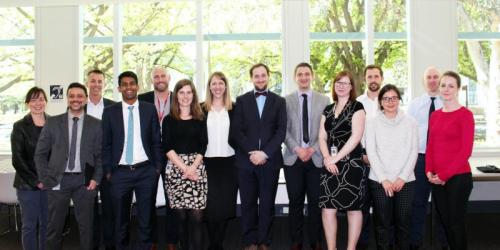
On Monday 31 October, BETA was excited to host Dr Michael Sanders as part of its Behavioural Insights Community of Practice seminar series at the Department of the Prime Minister and Cabinet.
Michael is the Chief Scientist and Head of Research, Evaluation and Social Action of the Behavioural Insights Team (BIT) in the UK. The UK BIT was the first dedicated unit set up to apply behavioural insights to improve government policy and services. Now operating as a ‘social purpose’ company the UK BIT has been involved in over 400 trials spaning almost all areas of public policy. Some of the team’s achievements include:
- Bringing forward billions of dollars of tax revenue
- Raising $300m for charity
- Helping to stop the spread of drug resistant disease
Michael himself has been actively building the evidence base associated with charitable giving. On Monday, he spoke to us about some of BIT’s recent trials in education and the use of machine learning to optimise trials.
Education trial
The Community of Practice heard about the results of recent trials that deployed text messages to improve educational outcomes. The text messages served as interventions that nudged students to check in with peers to consolidate learning and encourage student retention. In one trial, the BI team asked students to nominate up to two individuals as their "Study Supporter". Study Supporters received text messages at important moments in the academic term, such as in the lead up to a test, that would prompt them to engage with the student they were supporting. A seemingly simple intervention like this actually increased student attendance by 11 percent. Following the success of this trial and others, the UK BIT team are hoping that the evidence will help to inform decisions to scale such projects across the UK.
Machine learning
Michael also discussed how the UK BIT team are using machine learning to increase their understanding of how people are responding to their interventions. Machine learning is a mechanism that focuses on the development of computer programs that can teach themselves to grow and change when exposed to new data.
The UK BIT are using machine learning to target treatments at groups which benefit most from their intervention, and to design new treatments for other sub-groups.
The BETA team would like to thank Michael for taking the time to share his knowledge and experience on these innovative trials with our Community of Practice and joining us at PMC.
You can find out more about the UK BIT’s most recent trials in their Update Report 2015-16.

